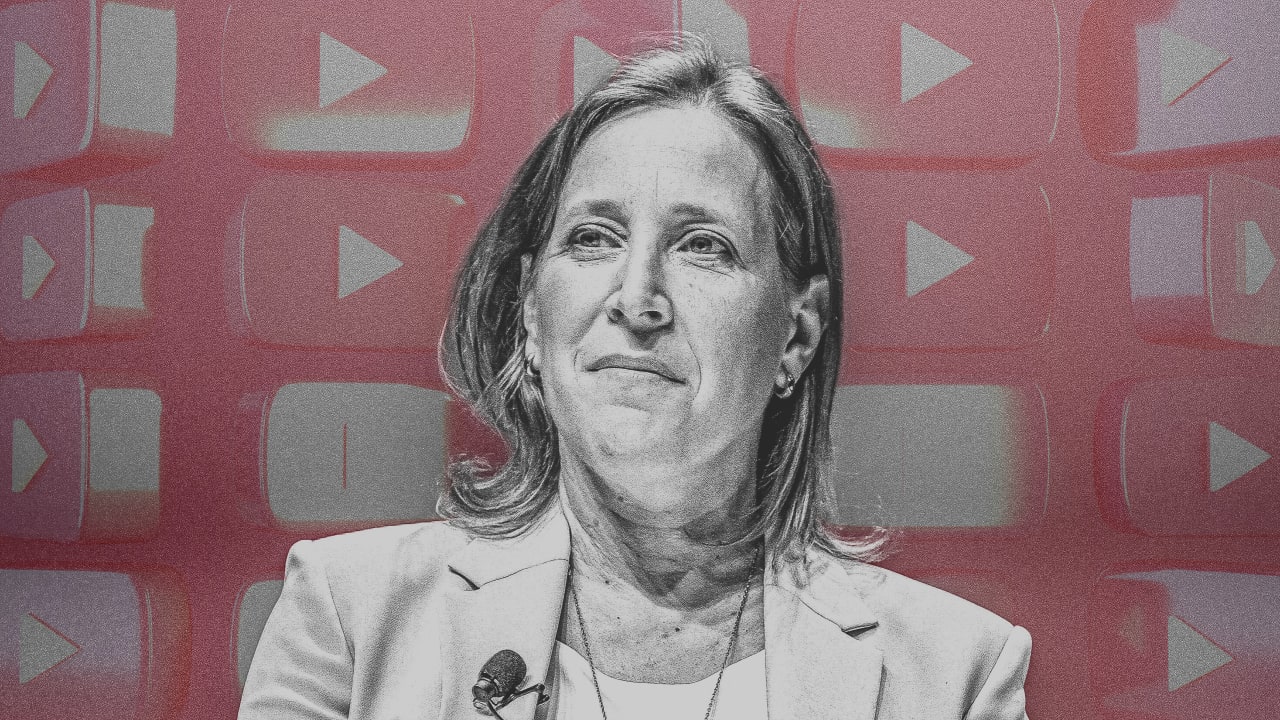[ad_1]

Susan Wojcicki has stepped down from her role as CEO of YouTube, according to an internal email to staff first reported by Vox.
Wojcicki, who was intrinsically connected to the history of YouTube’s parent company Google, has overseen YouTube for nearly a decade—a period when the world’s largest video-sharing platform became a major force in the world of entertainment and a place that shaped public opinion, for better or worse.
“Taken as a unit, Susan’s time at YouTube has been a story of year-after-year progress, and good leadership of a very new thing no one had any idea how it should be led,” says Hank Green, one of the largest YouTube creators, who has acted as an unofficial liaison between YouTube and the creator community. (Green established the Internet Creators Guild, a union for digital creators, in 2016.) “I definitely think her legacy is YouTube as it exists today, which is very different to what it was when she became CEO, but is a pretty powerful, positive force—even if it has pieces of it I think are a negative force in culture and society.”
Indeed, it seems Wojcicki brought a steady hand to a platform that has grown in stature and importance in the world since its 2005 launch. In a 2017 interview, Wojcicki described the platform as “an ecosystem between advertisers and creators and users.” Ultimately, keeping all three happy proved impossible: YouTube’s creator class has always remained restive and continues to be up in arms about decisions made to appease advertisers who seek brand-safe content—most recently with a 2023 change to YouTube’s swearing policy that some believe stifles their creativity. All the while, she’s dealt with declining ad revenues.
“Leading YouTube has got to be one of the most stressful jobs out there,” says Green. “You’ve got a lot of stakeholders, you’ve got creators who are many and varied all around the world, you’ve got advertisers . . . then you’ve got your shareholders, and they need the line to go up.”
TikTok’s rapid ascent posed another challenge. “The platform is fighting a multifront war,” says Brendan Gahan, partner and chief social officer at Mekanism, a creative advertising agency. “YouTube is the second-largest search engine [behind Google itself]. TikTok and other platforms are nipping at its heels, wooing creators.”
“The hardest time for the CEO of YouTube was the last few years, and Susan took YouTube through that,” adds Green. “I got a sense she was hearing all the things, and she was making tough calls confidently.”
Wojcicki was also tasked with navigating YouTube through issues such as the 2017 adpocalypse and, more grimly, a 2018 shooting at company headquarters by a woman who was angry at the platform for limiting her reach. “People aren’t quiet about their opinions of Susan,” says Green. “But Susan was the CEO when someone walked into YouTube with a gun and shot someone. From that day forward, everyone understood this thing had a big enough impact on the world that having this kind of power is not a joke.”
Her methodical nature could be a frustration to creators, but was a boon to those watching from the outside. “Susan Wojcicki never did anything quickly—it seemed like every decision was very measured,” says Lia Haberman, a social media marketing consultant and UCLA instructor. “And while there were things that upset creators and fans alike, like demonetization videos or removing dislikes, it felt like she was steering the ship toward a North Star versus chasing other platforms or content trends.”
As to her replacement and current deputy, Neal Mohan, Green for one is encouraged with the succession plan. “[Mohan] is a calm, thoughtful guy who is pretty well-respected internally at YouTube,” he says.
But it is a significant change—not least given that it leaves a single woman in charge of a large tech company. “My first impression was what a loss for women in tech,” says Haberman. “With Sheryl Sandberg stepping down last year, that now leaves Vanessa Pappas as the most visible woman at a social network.”
Haberman believes that, ultimately, history will be kind to Wojcicki. “Off the top of my head, I can’t think of a product decision Susan or the YouTube team made that was wildly off the mark,” she says. “Sure, Susan’s had to apologize for certain policy decisions, but she’s never had to walk back any major features like Adam Mosseri did in miscalculating the Instagram user backlash against short-form video.”
It’s an assessment that Green endorses. “My gut sense is this could easily have turned out much worse,” he says.
[ad_2]
Source link

